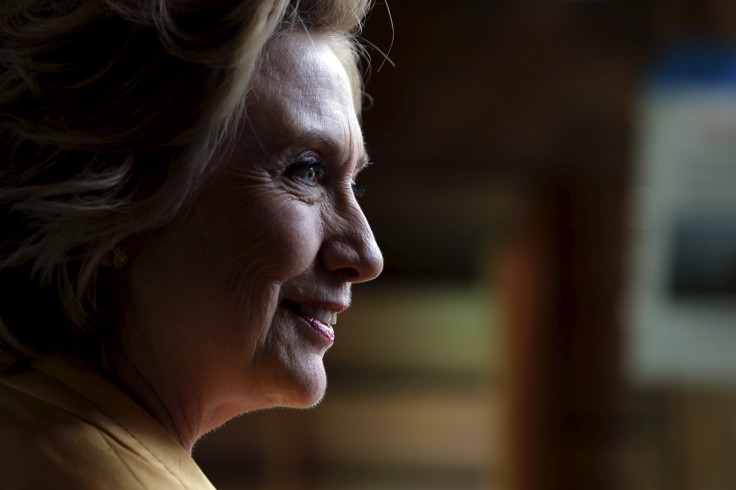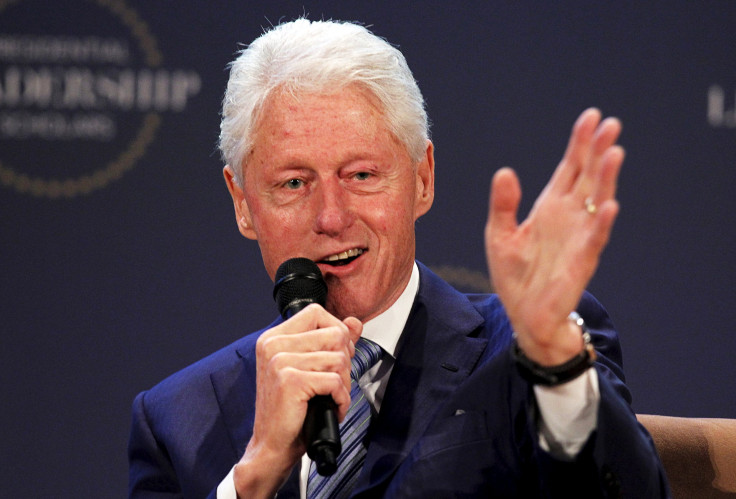Clinton Foundation Accepted Swiss Bank Money After Hillary Negotiated Settlement: Wall Street Journal

Months after then-Secretary of State Hillary Clinton helped resolve a diplomatic dispute with Switzerland over thousands of tax-evading American accounts held at UBS, the Swiss bank made a sizable investment in Clinton Foundation initiatives. In the years that followed, the bank would pay former President Bill Clinton a total of $1.5 million in speaking fees.
The peculiar timing of the events, reported by the Wall Street Journal, raises fresh questions around the confluence of nonprofit donations and political affairs as Hillary Clinton seeks the Democratic Party's 2016 presidential nomination.
There is no direct evidence that the prospect of future foundation contributions or speaking gigs influenced Clinton’s dealings with the Swiss government. Representatives of the Clinton Foundation, UBS and Switzerland -- speaking to the Journal -- each denied any untoward dealings.
The story began in 2009, when the U.S. Justice Department reached a settlement with UBS over a wide-ranging scheme to assist wealthy Americans in avoiding domestic taxes by parking their cash in sham entities set up with the help of the bank. “This was not a mere compliance oversight, but rather a knowing crime motivated by greed and disrespect of the law," R. Alexander Acosta, U.S. attorney for the Southern District of Florida, said at the time.
To resolve charges of defrauding the United States, UBS paid $780 million, agreed to quit abetting tax-evaders and handed over the names of 250 account holders.
But the IRS wanted more. UBS housed more than 52,000 American accounts, which prosecutors estimated held some $18 billion in untaxed cash. The bank, reluctant to turn over the whole list of names, suggested that the matter be resolved through diplomacy.

That’s where Clinton and the State Department came in. Months after the February 2009 settlement, Clinton embarked on a series of meetings with Swiss diplomats over the dispute. Other bargaining chips soon emerged: Among other things, Clinton wanted the Swiss government to take in Guantanamo Bay detainees and help free an American journalist detained in Iran.
In August 2009, the two sides reached a deal. UBS would turn over 4,450 names -- less than 10 percent of the 52,000 the IRS had sought. The State Department didn’t negotiate the finer points of the deal, but did advise the Justice Department against taking a hard line, John DiCicco, the top Justice Department tax lawyer on the case, told the Journal.
Soon thereafter, UBS increased its donations to the Clinton Foundation. In early 2010, the bank joined the nonprofit in an entrepreneurship program called the Clinton Economic Opportunity Initiative. In 2011 UBS donated $350,000 to the initiative.
Speaking fees rolled in as well. UBS tapped Bill Clinton for 11 speaking gigs, paying him $1.5 million and making the bank the largest single disclosed source of corporate speaking income for the former president.
Though there’s no indication of a direct quid pro quo between the bank and the Clinton family, the coincidence of donations, speaking fees and political dealings fits a pattern that critics have asserted represents a conflict of interest. Given the Clinton Foundation’s lengthy donor list and the expansive activities of the State Department under Hillary Clinton, it’s unlikely those concerns will die down before the 2016 presidential contest is over.
© Copyright IBTimes 2024. All rights reserved.






















